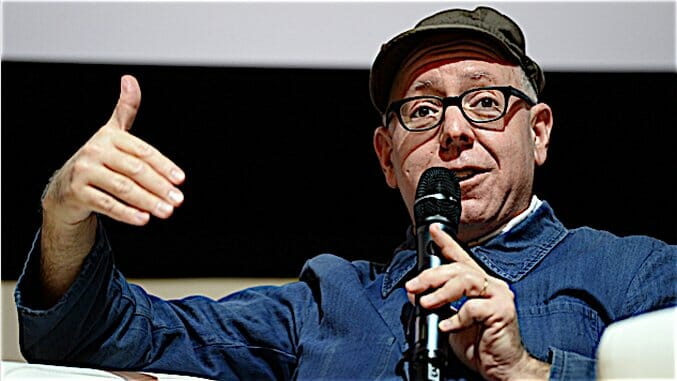“The Key Is Failure”: James Schamus on Indignation
Photo by Jeff Spicer/Getty
James Schamus has just begun his career as a director with this year’s Philip Roth adaptation Indignation, but he’s already had at least two other enviable careers. He’s an Oscar-nominated and double BAFTA-winning screenwriter, having penned the Ang Lee classics The Ice Storm and Crouching Tiger, Hidden Dragon, among others. And as the CEO of Focus Features, he produced and otherwise shepherded such films as Brokeback Mountain, Happiness, Walking and Talking and She’s the One, among many others. Having achieved success in these realms, Schamus set his sites on an adjacent one, the director’s chair in Indignation. He joined Paste recently to speak about the new film, and about what he’s learned over the course of a very full career.
Paste Magazine: Let’s talk about Indignation. Given everything that you’ve done in the past—working with one of the greatest film makers alive in Ang Lee and shepherding so many iconic, great projects as CEO of Focus Features—how do you sit down to write and then direct with a clear head? Without all of those experiences echoing through your brain as you sit down to direct for the first time?
James Schamus: The answer’s very simple. You could be the most accomplished, Nobel prize-winning physicist, the president of the student body of your high school and have starred off-Broadway in a Pulitzer prize-winning musical, but the fact is when you’re crossing the street and a truck turns the corner and is coming at you at 50 miles an hour, you’re going to jump. No matter who you are or what background you have. Your panic really helps overcome any of the potential challenges of being old and having an overblown ego.
Paste: But then also there’s just a question of influence. There’s just a question of sitting down to write a song when you’ve been working with Dylan for 20 years—how do you sort through and find your own vision?
Schamus: It’s a good question because I did have to face those kind of issues. First, you just to admit failure before you begin. When you’re someone like me, having run a movie studio for example, the odds are pretty overwhelming that when you go out to make a movie, you’re probably going to be kind of embarrassed. I think I got lucky on this one. Maybe if they let me do it again, I’ll be embarrassed on the next one. But that’s everybody. I did sit down with my family and say, look, I’m going to try this and guess what? It will probably be pretty embarrassing. But that happens with all directors. There are great directors out there making great movies and then their next movie is, well, not so great. And then they go out to make another movie. The key to these kinds of careers is failure. You constantly run that risk, no matter what, so don’t let that stop you.
Paste: Sure.
Schamus: As for the question of influence—I did have to deal with that, very strong influences. But I made absolutely sure, once I made a commitment to make a movie, that those influences would be as subconscious as humanly possible. If I’m going to get a team together and make a movie, it’s going to be our movie. If it’s going to be a movie that we’re making in the shadow of, or in homage to, or in any way shape or form conscious of imitating somebody else, then the odds are it’s going to be a much worse movie than it otherwise would have been. I can’t make an Ang Lee movie, and if I tried I’d make a really bad one. All I can do is hope to make a really good James Schamus movie. So I just pushed aside any question of influence or any sense that I had to find a style to imitate, and we just went at it fresh.
Paste: And after?
Schamus: When the film was done, I was looking at it, sitting with friends and one of my assistants turned to me aand asked the same questions—who were your big influences? I still didn’t know yet. Looking at the film and trying to figure it out, you find some really weird surprises. It’s all so subconscious and repressed, but I was looking at it and thought, ‘This reminds me a bit of kind of mid-period Louis Malle.’ I never really thought about Louis Malle. I probably haven’t re-watched a Louis Malle movie in years. But when I was looking at it, I was like, oh right because he’s kind of weird, but he makes it look normal. The characters were actually completely on the edge of what would seem to be sustainable personalities for 20th and 21st century capitalist culture. And yet somehow the narratives work.
-

-

-

-

-

-

-

-

-

-

-

-

-

-

-

-

-

-

-

-

-

-

-

-

-

-

-

-

-

-

-

-

-

-

-

-

-

-

-

-








































